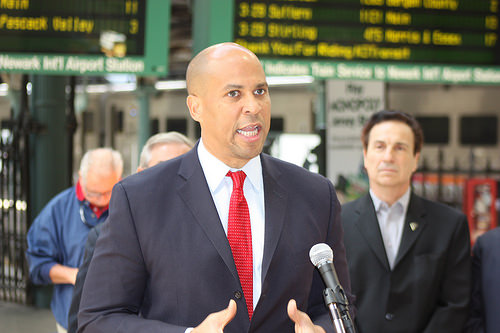
Postal Innovation Act calls for USPS to use more “cost-efficient and environmentally friendly technology”

US Senator Cory Booker has introduced the Postal Innovation Act, which calls upon the United States Postal Service (USPS) to use “more cost-efficient and environmentally friendly technology” for its vehicles, and also explore “the economic benefits of non-postal services”. The bill is something of a technological mash-up: it wants the USPS to take an “innovative” approach to both vehicle technology and online communication tools. And it also wants to allow the USPS to test potential new sources of revenue generation – such as overturning a century-old ban and permitting the postal service to ship alcohol.
In a statement issued on Friday (24 July) Senator Booker – a Democrat from New Jersey – commented: “At a time when budgets are tight, it is in our best interest to find creative ways to make prudent investments that improve safety, reduce the carbon footprint of postal vehicles, and save taxpayers money. The Postal Innovation Act will help the Postal Service identify efficient and innovative technologies to better serve Americans.”
The Senator continued: “The USPS employs nearly 22,000 people in New Jersey and 618,000 people across the nation. USPS has long been a provider of critical communications services, yet needs to explore ways to keep pace with the changing needs of consumers. The Postal Innovation Act takes steps forward to address these challenges by having the USPS investigate the economic benefits of non-postal services such as public Internet access.
“The savings from these programs can spur future innovation, research, and development to ensure the USPS can sustain itself well into the future.”
Turning to specifics, Senator Booker said the Postal Innovation Act would:
- allow USPS to enter into contracts to upgrade the postal fleet by increasing long-term savings through the reduction of collision, maintenance, fuel, and other costs
- require postal vehicles to be equipped with collision-averting technology
- instruct USPS to “reduce its vehicular consumption of petroleum products by no less than 2% annually through the end of fiscal year 2025”
- require postal vehicles to comply with standards established by the Administrator of the Environmental Protection Agency in accordance with the agency’s authority under the Clean Air Act
- allow the Postal Service to utilise savings from this act to reinvest in innovation, research, and development.
The Senator’s statement also included two aims for the bill which focused on the application of online communications and other potential commercial opportunities, rather vehicle technology. They were:
- allowing USPS “to implement pilot programmes in five cities for non-postal services including public wireless broadband Internet access, experimental postal products market testing, beer and wine shipment, warehousing, and Internet voting”
- providing “guidelines for the Comptroller General to conduct a study of potential opportunities and challenges related to the Postal Service providing public internet access and online voting”.
The proposal to allow USPS to implement pilot programmes for “beer and wine shipment” is an idea which has been included in various Senate and House bills. In 2013, for example, Representative Jackie Speier introduced the United States Postal Service Shipping Equity Act which sought to “authorize the mailing of wine or malt beverages by licensed wineries or breweries in accordance with the law of the state, territory, or district of the United States where the addressee or duly authorized agent takes delivery”. The law which currently prohibits beer, wine or spirits being sent through the national postal service dates back to 1909.











